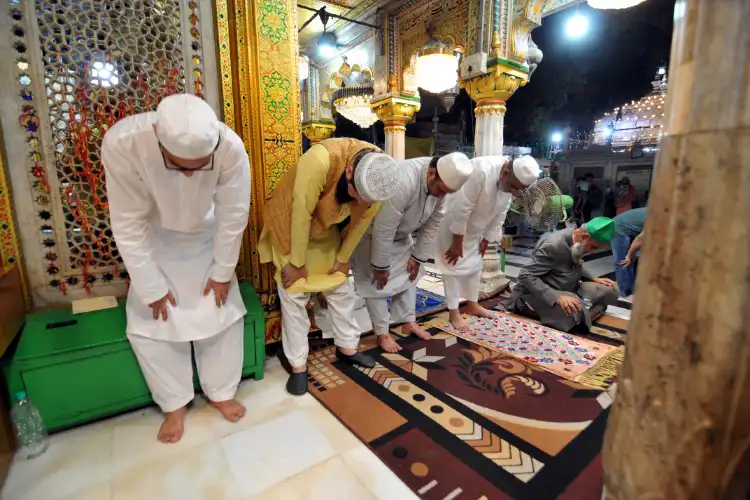
Eman Sakina
The primary purpose of religion is to bind human beings to each other in the bonds of love, sympathy, brotherhood, and compassion for peaceful coexistence. Religion also binds human beings to Almighty.
There are two parts of every religion: exoteric and esoteric. The exoteric part is related to rituals which can be considered as a medium between the believers and the esoteric part, which is spiritual. In Islam rituals like Namaz and Roza (fasting) are the passages for the destination, that can be achieved through practicing spirituality; albeit Namaz and Rozatoo have spiritual purpose by way of learning discipline and self-restraint. The ultimate aim through such exercises is to guard against evils.
The Qur'an was revealed in Arabic; whereas, the majority of Muslims across the world simply memorize it without understanding the message of the Lord, which preaches excellence of behaviour through spiritual learning. The gist of Allah's message through the Qur'an and sermons of the Prophet is: acquisition of knowledge is binding on all Muslim males and females.
"Whoever follows a path in the pursuit of knowledge, Allah will make easy for him a path to Paradise." "People are paying no attention to the best act of worship i.e. humility."
In view of the above, a true Muslim is he who excels in education, restrain from orthodox and obsolete traditions, discards violence of any kind, and conveys the message of peace to contemporary society.
We relentlessly make offerings to God, observe fasts to please Him, proud ourselves of visiting shrines, in doing charity (to keep up the good karma) and all this is done for merely two reasons, namely Desire of sense gratifying riches & Fear of being rubbed the wrong way by Him! Very seldom do we come across individuals who are in love with Him for the right reasons. Thus, the exoteric part of the religion is related to rituals performed by the devotees while offering the prayers in accordance with the prescribed norms and commandments duly prescribed by their respective religions. These rituals are fair enough to create discipline among the believers but do not make good for fellow human beings. The ultimate goal of every religion is to create fellow feelings, compassion, and peace while living in a society. For that, the religious person has to develop his higher level of consciousness, which is possible by adopting the esoteric side of the religion viz. spirituality. Esoteric is the antonym of exoteric. Spirituality is something that is very close to a person’s personal convictions. It has nothing to do with religion, rituals, nationality, race, gender, etc.
The Holy Quran has repeatedly stressed ‘deep thinking’ and meditation. This thought process is itself the ‘spirituality’. Belief in a future life and accountability of human actions in another existence are two principal doctrines of the Islamic Creed.
Spirituality should be in the process, not only the outcome of the process! But we end up spending large amounts of time (& money) preparing for a Ritual when we can spend the same amount of time in remembering the Lord, chanting his name; in being Spiritual! We repeatedly forget that whatever we offer to Him was given to us by Him; so, all we can in principle give Him is our free will, our consciousness.
The rituals we follow are just the medium and not the destination and thus can be outdated from place and time. Adopting universal spiritual values by modern Muslim youth will make Islam more respectful. Adopting spirituality and moral values listed in Islam will make humans and the world a better place to live in. It will remove all misconceptions that are adhered to Islam by mis-preachers. The moral values, at last, are found to be common in every religion through rituals can be diverse which thus leads to Pluralism. Thus, only focus on spiritualism will unite the humans. It is now in our hands whether to choose a medium to reach the destination and wander in search of it or to divert our souls towards the main destination and attain “Nirvana”.
Prophet Muhammad stated the foremost purpose of his being sent to this world: “I have been sent only for the purpose of perfecting good morals.”
Also Read: Patience is a virtue
Islam builds a system of morality based on the purification of the heart from egoism, indiscipline, recklessness, and carnal desires. It encourages the adoption of higher qualities such as piety, modesty, humility, abstinence, and discipline. Islam induces feelings of moral responsibility and fosters the capacity for self-control. Islam generates kindness, generosity, mercy, sympathy, peace, fairness, and truthfulness towards all creation in all situations. Allah has made the religion of Islam so adaptable that we can worship Him through anything good we do when done sincerely and correctly.
